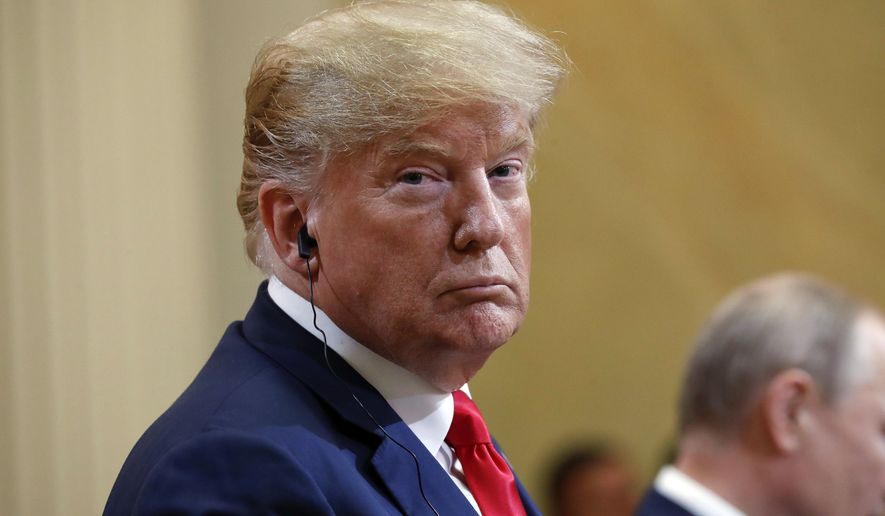OPINION:
Helsinki. It wasn’t good, but it also wasn’t the end of our republic and an impeachable offense. Everybody settle down.
You know what a bad engagement with Russia on the world stage could have looked like?
Well, if President Trump had emerged from the summit with Vladimir Putin and announced he had just sold 20% of America’s uranium reserves to a Russian oligarch with financial ties to his family, that would have been bad.
And if he had whispered into Putin’s ear and told him that after his re-election he’d have “more flexibility” to deal with him, we would have been concerned.
If he had brought a stupid plastic button to the summit and asked him to push it so we could reset our relationship, we would have been correct to do a group face palm.
It was bad, but it wasn’t that bad.
In our current era of media hyperbole, hysterical over reaction wins the day over thoughtful analysis. It takes great effort to look at any given event and see it for what it is and, more importantly, what it isn’t.
Trump’s response to a question about Russian meddling and hacking during the 2016 election yesterday in Helsinki was a moment of bad message discipline. It was not “Pearl Harbor” or “Kristallnacht” or “treason” or an excuse for a military coup (not that there ever would be a legitimate excuse for a military coup in America but we actually have a Democrat congressman suggesting otherwise.)
Where are our military folks ? The Commander in Chief is in the hands of our enemy! https://t.co/3eF7OLKEdN
— Steve Cohen (@RepCohen) July 16, 2018
President Trump’s equivocation on the Russian hacking of political computer systems in 2016, including the attempts to hack into Republican systems as well, was a very bad moment that can and should be repaired.
But, it is important to understand how and why it happened.
Trump was asked about the Mueller indictments handed down Friday against 12 military officials in Russian intelligence. The timing of these indictments guaranteed that this would be the dominant media story during the Helsinki summit.
In Trump’s mind, a question about Russian hacking is an attack on the legitimacy of his presidency. Why? Because his 2016 victory has been under attack since the day after it occurred. The Democrat/Media complex has been hammering away at the idea that Hillary Clinton was robbed and Trump is only there because he colluded with Putin to steal Hillary’s victory from her and the American people.
Here he is, concluding a historic summit with Vladimir Putin after meeting the Queen of England and after haranguing NATO leaders into finally following through with their promised commitments and now he has to answer a question that challenges his legitimacy? And he has to do it in front of Putin?
He reacted as though he was being attacked and he reacted as though he had to defend his presidency. He didn’t have to do that and he shouldn’t have.
To proclaim that Russia hacked the DNC and John Podesta’s emails and the emails from those operations were released to meddle in the 2016 election is not an attack on the legitimacy of Trump’s presidency. And this White House needs to understand that and embrace it.
Russian meddling is not the same as Trump/Russia collusion.
The president could have said “I raised the issue of the allegations in Mr. Mueller’s indictment. President Putin has denied any involvement in the hacking (as he did when President Obama raised the issue two years ago) and we will allow this process to play itself out. But we had many other major issues we discussed in our meeting including Syria, Crimea, our common interests against radical Islamic terrorists and our hopes to repair our frayed relationship that has deteriorated over the past decade. Next question.”
But instead he equated the hacking issue with an accusation of collusion and went on the defensive. And when Trump goes on the defensive, he immediately goes on the offensive. It wasn’t good. An American president should not begin to construct the criminal defense of a foreign adversary on their behalf. Let Putin do that.




Please read our comment policy before commenting.